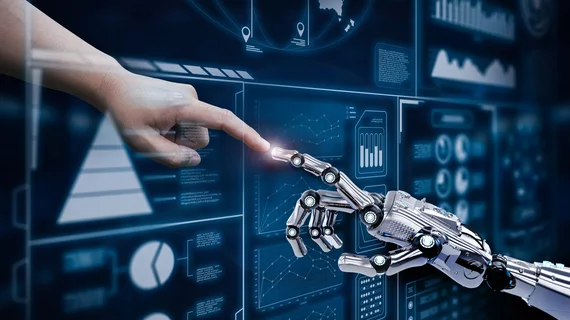Rise of AI keeping some medical students away from radiology
Many medical students think breakthroughs in artificial intelligence (AI) will reduce demand for radiologists, according to a new study published in Academic Radiology. AI has even discouraged some students from considering a career in radiology.
The authors surveyed students at 17 medical schools in Canada in March 2018, receiving more than 300 responses. Overall, more than 29 percent of respondents said AI will replace radiologists altogether. More than 67 percent said it would reduce the overall demand for radiologists.
When looking at replies from just respondents who consider radiology their top choice, more than 48 percent said the rise of AI has left them feeling anxious about their future. In addition, 14 respondents indicated they would consider radiology their top choice if not for AI.
“Our study revealed considerable anxiety among medical students interested in radiology, caused by their perceptions of the impact of AI,” wrote lead author Bo Gong, department of radiology at Vancouver General Hospital in Vancouver, British Columbia, Canada. “Although interested students generally disagreed with a ‘replacement’ view, many were concerned about the potential ‘displacement’ of radiologists by improved efficiency with the future AI-augmented model. Such anxiety discouraged a significant number of medical students from considering the radiology specialty.”
The authors noted that there are steps the radiology community can take to help these students concerned about the impact AI may have on the specialty. The survey provided respondents with a list of possible ways they would like radiologists to help medical students learn more about this topic and make smart decisions about their careers. “Invite experts to provide opinions on the impact of AI” and “discuss AI in pre-clinical radiology lectures” were the two options selected most frequently by the students.
Gong and colleagues also emphasized respondents were still on board with AI and its potential to help patients, even if they did have anxiety that could impact the decisions they make in their own careers.
“It is important to note that, despite significant anxiety about the uncertain impact of AI, respondents overwhelmingly supported the notion of collaborating with the IT industry to facilitate the development and application of AI in radiology for AI's potential value to improve patient care,” the authors wrote. “Such commendable attitudes toward the patient-centered practice of radiology, despite perceived detrimental consequences to the radiologist workforce, were further confirmed by the narrative comments of several respondents.”

